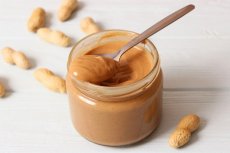
Peanut butter is a staple in many households, known for its creamy texture and rich flavor. While it's high in calories and fats, does it necessarily lead to weight gain? Let's delve into its nutritional profile and understand how it fits into a balanced diet.
A 32-gram (2 tablespoons) serving of peanut butter contains approximately:
188 calories
16 grams of fat (3g saturated, 8g monounsaturated, 4g polyunsaturated)
8 grams of protein
2 grams of fiber
It's also rich in vitamin E, B vitamins, magnesium, phosphorus, zinc, and manganese. Notably, about 75% of its fat content is unsaturated, which is heart-healthy and can help reduce LDL cholesterol levels.
Weight gain occurs when calorie intake exceeds expenditure. However, studies suggest that moderate consumption of peanut butter doesn't necessarily lead to weight gain. In fact, it can aid in weight management by promoting satiety, stabilizing blood sugar levels, and preserving muscle mass during weight loss.
Including peanut butter in a balanced diet can be beneficial:
Satiety: Its protein and fiber content help you feel full longer.
Blood Sugar Control: It has a low glycemic index, aiding in blood sugar regulation.
Muscle Preservation: Adequate protein intake supports muscle mass during weight loss.
Remember, moderation is key. Consuming peanut butter within your daily calorie needs can be part of a healthy diet.